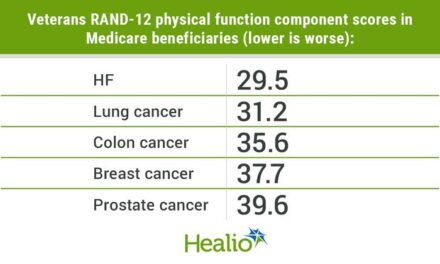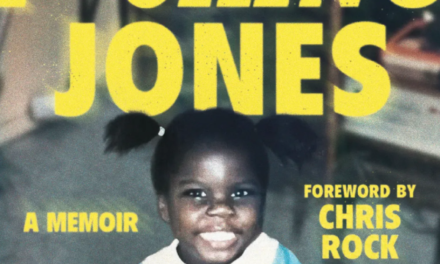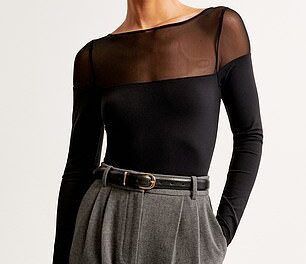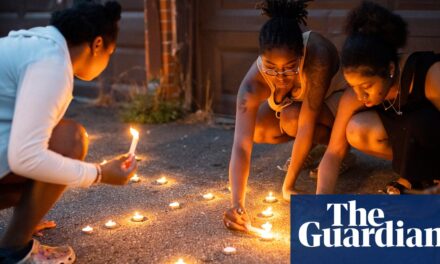By Marc McGowan
Australia’s Billie Jean King Cup captain Alicia Molik believes Ajla Tomljanovic had to clear an even bigger mental hurdle to win her first match back from injury than toppling Serena Williams last year.
Tomljanovic’s gutsy US Open triumph on Monday morning (AEST), in her first competitive match since October, finally gave her something to celebrate in what has otherwise been a wretched, injury-marred season.
Ajla Tomljanovic had been sidelined for a year before returning to tennis with an impressive win over Panna Udvardy of Hungary at the US Open.Credit: Getty
The triple grand slam quarter-finalist, who ended the legendary Williams’ career at this event 12 months ago, rallied from a set down and 0-2 in the final set to oust Hungary’s Panna Udvardy 3-6, 6-2, 6-4 in six minutes short of two hours.
Tomljanovic was in disbelief immediately after securing the victory, which followed her withdrawal on the eve of all three previous grand slams this year due to a left knee injury that she struggled to shake for months.
“To be honest with you, Ajla’s win blew me away,” Molik told The Age.
“She’s been out of the sport for probably 10 months with no competition, and the pressure of clawing your way back for your first win is hard enough, let alone in the first round of a grand slam. It’s quite remarkable she got herself to this point.
“The injury took longer than what she would have expected, and you could see the emotion on her face at the end – it was relief, happiness and joy from being back on a competitive match court.”
Tomljanovic revealed post-match she took a bunch of videos of herself talking to the camera while she was sidelined as “proof of what it felt like”.
“At this stage of my career; going through an injury is very different,” Tomljanovic said.
“Even today, losing the first set, I thought to myself, ‘This crowd is awesome. I would not want to be anywhere else, even if I don’t come up with a win. I’ve been working for these two hours of pure adrenaline, joy, problem-solving and competing’.”
Tomljanovic joined fellow Australians Daria Saville – herself not long back from an ACL rupture – and Rinky Hijikata, a wildcard, in advancing to the second round. Saville helped calm a nerve-riddled Tomljanovic before her match, convincing her that being back on court was “a celebration”.
Saville’s 6-0, 6-2 demolition of Wimbledon junior champion Clervie Ngounoue booked her the toughest task in women’s tennis, against world No.1 Iga Swiatek.
The draw was not much kinder to Tomljanovic, who will lock horns with fourth seed Elena Rybakina, in a rematch of their three-set Wimbledon quarter-final last year that helped propel the Kazakh to the title.
“Coming back from injury; that first win is worth five,” Molik said. “Ajla jumped that hurdle, and it was massive for her, so I feel like she can absolutely go out swinging.
Australian Daria Saville serves to Clervie Ngounoue, of the US, in their first round women’s singles match at the US Open.Credit: Getty
“Rybakina is one of the best servers in the game, but I truly believe Ajla is one of the best returners. When she’s seeing the ball really well; she has a real knack of making a high percentage of returns. That needs to be a strong point for her to make any dents or inroads, and she needs to get Rybakina moving.
“It’s a tough match-up for ‘Dash’ [Saville], and it’s almost like she’s playing a slightly different version of herself. They both never miss, and their movement is incredible, especially in defence … whether she wins or loses, this will be a real indicator for her on where her game is at in her comeback.”
Tomljanovic, a former world No.32 whose ranking tumbled as low as 130 in her absence, tried to avoid surgery before undergoing what she described as a minor procedure in January, once “conservative methods” failed to fix the problem.
The timing could hardly have been worse, with Tomljanovic fresh from a career-best season and confident she could make a deep run at the Australian Open. She warned she would be out for several months, but not even she expected to be out for so long.
Tomljanovic remained on the entry list until only a handful of days before the French Open and Wimbledon, only to pull out when her knee failed to show sufficient improvement.
She continued training at her Florida base and also attended a rehabilitation centre at Manhattan Beach, in California, as she diligently and patiently worked her way back. There were no grand comeback announcements in the weeks leading up to the New York grand slam, but this time she made it onto the court as she attempts to salvage something from the season.
Molik, who now hopes to have Tomljanovic available for Billie Jean King Cup Finals duty in November, lauded the Australian star for taking her time to return.
“I just think Ajla is at the level where you don’t take to the court unless you’re 100 per cent because you’d be doing yourself a disservice,” Molik said.
“The more mature of a player you become, and the more success you have, you are more wary of coming back from injury, and more in tune with your body. It was really sensible and wise to wait because the risk of coming back too early is you can set yourself back another six months or so.”
Hijikata may make his top-100 debut thanks to his four-hour, 7-5, 5-7, 6-3, 7-5 defeat of Russia’s Pavel Kotov, but Storm Hunter, qualifying lucky loser Kim Birrell, qualifier Olivia Gadecki – who Molik has high hopes for in the next 24 months – and Alexei Popyrin all bowed out.
Popyrin arrived in New York after reaching the Cincinnati Masters quarter-finals but lost at a grand slam for the second time this year to Swiss rising star Dominic Stricker in a 6-3, 6-4, 3-6, 6-3 result.
Gadecki made a bright start against 16-year-old prodigy Mirra Andreeva before going down 1-6, 6-3, 6-4; Hunter fell 6-4, 6-0 to 10th seed Karolina Muchova; and Birrell exited 6-3, 7-6 (7-4) at American Jen Brady’s hands.





